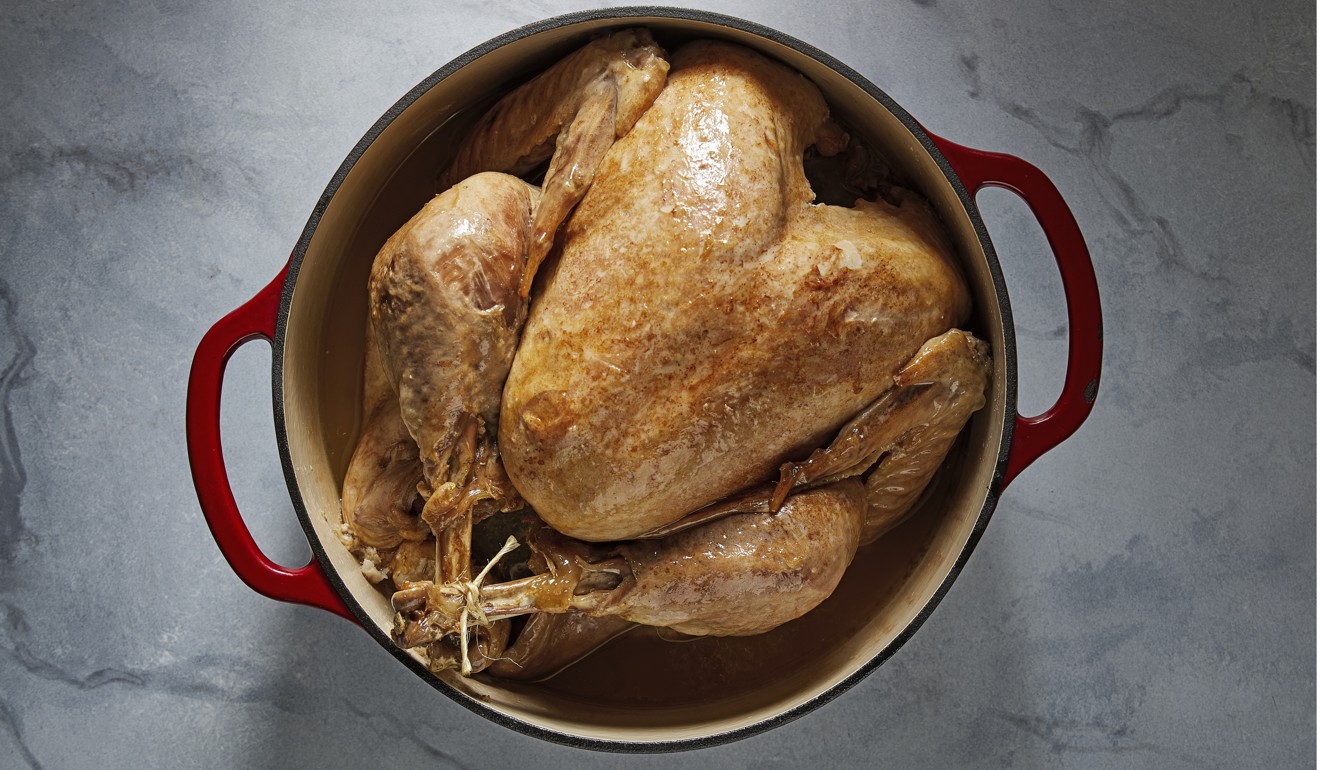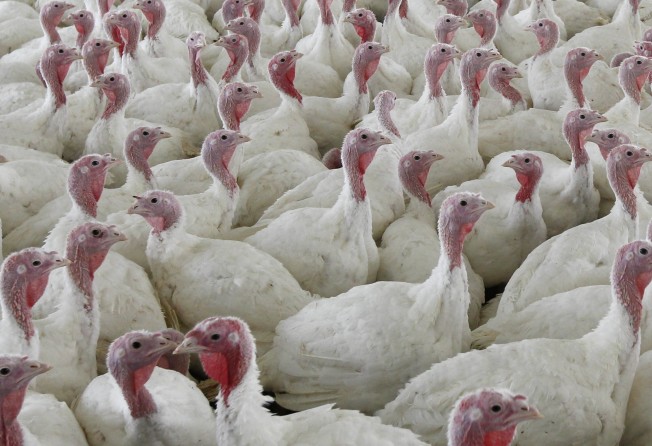
Thanksgiving gives China’s turkey farmers a chance to gobble up some profits
- Western festivals drive a spike in sales for Chinese poultry breeders, despite protests against them on ideological grounds
- Domestic market remains small although interest in ‘exotic’ products is on the rise among the middle class

Chinese turkey farmer Fang Guoping does not get much sleep at this time of year. After finishing processing his orders for the day at 6pm, he has just enough time to freshen up, eat and get a few hours’ rest before starting the next round of slaughtering, cleaning and packing.
“I start work at 3 or 4am, and sometimes at midnight,” he said. “I only rest for a few hours a day. After all, this is the only time of the year that we can make money.”
The two-month period from November to New Year’s Eve is a window of opportunity for turkey farmers in China to cash in on two Western festivals – Thanksgiving and Christmas – as families and companies buy birds for their holiday banquets.
Since 2013, Fang has managed a rural cooperative of a dozen farmers in Hengfeng, a small county in east China’s Jiangxi province. Over the years, the group has generated millions of yuan in revenue, and now moves between 6,000 and 10,000 turkeys a year.
The farmers sell most of their birds online, via the e-commerce website Taobao, and Fang is one of the most successful turkey vendors on the platform.

The problem he and his fellow breeders face, however, is price, as local turkeys can be up to five times as expensive as imported birds.
Fang said that on Taobao, he sells a 1.5kg (3.3lb) turkey for 320 yuan (US$46), while a 5kg imported bird costs just 228 yuan.
But, unlike in the United States, where turkeys are fattened up on livestock feed, Chinese birds were free range, grazing organically on grass and grain, he said.
As a result, they are smaller, lighter and more muscular than imported ones, but much fresher and less fatty. And while foreign turkeys are frozen for months during shipment, Chinese birds can go from the farm to the oven within days.
Taobao is owned by Alibaba Group, which also owns the South China Morning Post.
While turkey is not a popular meat among Chinese consumers – pork, beef and lamb remain the staples – Fang said he had seen an uptick in demand in recent years, as China’s growing middle classes sought out more “exotic” products, including foreign foods.
“[But] it’s still a small industry,” he said. “I have seen people [farmers] giving up after four or five years. It’s hard to survive.”
Another reason local turkeys are more expensive is that while land and labour costs are relatively low in rural China, organic birds take six months – from May to October – to rear, compared with just three months for factory-farmed turkeys.
However, imports of frozen turkeys and related processed meat products have fallen sharply in recent years. From a high of US$85 million in 2012, the total was just US$3.9 million in 2017, according to figures from the United Nations, with the downward trend appearing to suggest a slump in demand driven by multiple bird flu outbreaks.
While for many years the bulk of the turkeys imported by China came from the United States, since 2015, Chile has been its primary supplier. China’s exports of turkeys – including processed variants – are minimal, reaching just US$23,270 in 2017, most of which went to North Korea.
Despite the difficulties faced by China’s turkey and other farmers, Beijing has been keen to promote the use of e-commerce platforms as a way for rural communities to profit from traditional skills without having to leave the countryside. As the country’s economic growth has slowed, so too has the demand for migrant workers in its cities.
While some local governments have held up co-operatives like Fang’s as examples of the success of Chinese President Xi Jinping’s poverty alleviation programme, boycotts of Western festivals on ideological grounds in some cities have dampened demand for the meat.
In contrast, Zhang Dengyun, who sells more than 1,000 turkeys a year from his farm in central China’s Henan province, said an increase in the number of bilingual schools on the mainland had helped him to keep his head above water.
“Business is still good, but compared to the previous few years, it has gone down,” he said. “In the past, companies were the main buyers. Now it’s mostly households.”